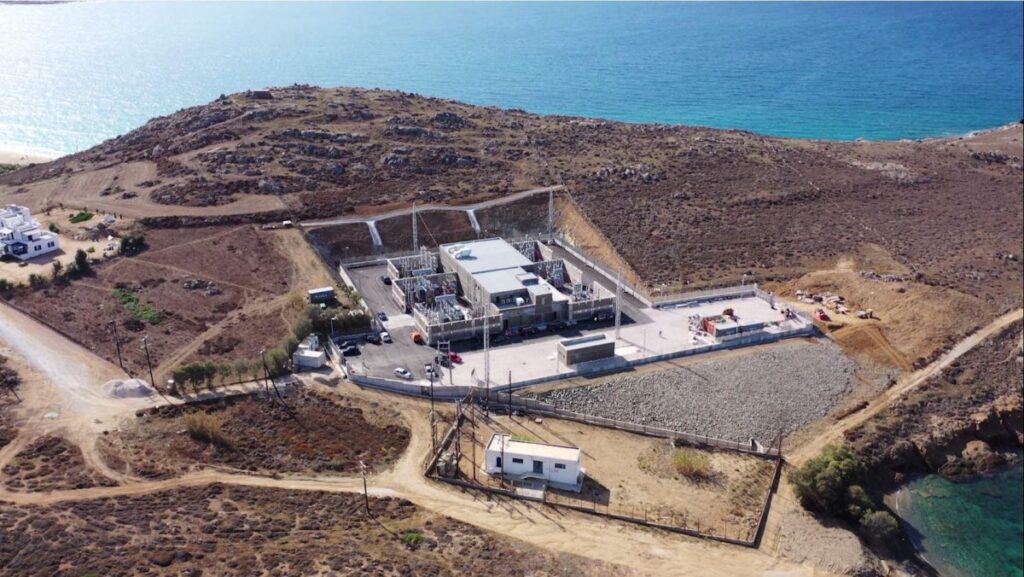The Cyclades islands have dropped diesel electricity generators in favour of a direct connection to the cleaner and safer electricity grid of mainland Greece.
The Cyclades islands have dropped diesel electricity generators in favour of a direct connection to the cleaner and safer electricity grid of mainland Greece. It’s a project that will benefit the tourism business and the environment – and it’s supported by the European cohesion policy.
For decades, the Islands have suffered frequent power cuts that have caused serious problems for businesses and residents.
Now this Greek archipelago is benefiting from a more stable energy supply, thanks to “Cyclades Interconnection”, a European project that will also connect the islands with each other.
How does it work? Thanks to hundreds of kilometres of 150,000-volt underwater cables: the longest AC interconnection of submarine cable networks in the world.
“Mainland Greece’s stable, robust electricity grid is now transferred to the islands,” says Nikolaos Margoutas, project manager for Cyclades Islands Interconnection. “This makes the system more powerful. An example is that we will no longer experience the frequent power cuts that occur because of extreme weather.”
The Cyclades interconnection project started in 2017 and has 4 phases, the fourth should be completed in 2024.
It has a total budget of €782 million, with the bulk of the funding coming from the IPTO and the EU Cohesion Policy’s €276 million.
At the end of the process, ten islands of the archipelago will be connected to the continental electricity network.
This Autumn it’s Naxos’s turn to receive high-quality electricity, via a new substation built on the island by IPTO – the Independent Power Transmission Operator.
Rich in history and with landscapes to dream of, Naxos receives thousands of visitors from all over the world each year, even in spite of the Covid-19 pandemic.
Stelios Vathrakokilis is the owner of two hotels on Naxos. High voltage will be a plus for him because, until now, the island’s electrical problems have had a direct impact on his work.
“Power cuts during the summer cause problems for all tourism businesses, especially with regards to fridges and air-conditioning,” he says. “Some people get scared at night with just safety lights. Some pay a lot of money – but don’t even have air conditioning.”
As well as stimulating tourism, the islands can do away with polluting fuel generators and switch to a cleaner system.
“Power stations that burn fossil fuels – diesel or crude oil – are closing down,” says Ioannis Margaris, Vice-President of IPTO. “It means bills for consumers will reduce significantly. The interconnection of the islands is not going against green energy. It is the road that renewable energy has to pass through, be it solar or wind, towards mainland Greece and vice versa.”
Source: EuroNews


